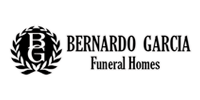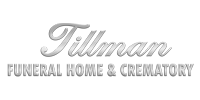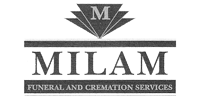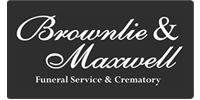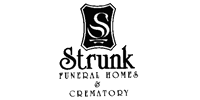Introduction
The Funeral Rule (mandatory through the Federal Trade Commission (FTC) requires you to give consumers accurate, itemized price information (known as the General Price List (GPL) and various other disclosures about funeral goods and services. In addition, the Funeral Rule prohibits you from:
- misrepresenting legal, crematory, and cemetery requirements;
- embalming for a fee without permission;
- requiring the purchase of a casket for direct cremation;
- requiring consumers to buy certain funeral goods or services as a condition for furnishing other funeral goods or services; and
- engaging in other deceptive or unfair practices.
Violating the Funeral Rule, may be subject to penalties of up to $41,484 per violation.
These guidelines do not amend or modify the Rule. They explain the requirements of the revised Funeral Rule and discuss how to prepare documents required by the Rule – the General Price List, the Casket Price List, the Outer Burial Container Price List, and the Statement of Funeral Goods and Services Selected. The guidelines also include sample price lists and a sample itemized statement form. These guidelines represent the FTC staff’s view of what the law requires. They are not binding on the Commission.
Who Must Comply With the Funeral Rule?
All “funeral providers” must comply with the Rule. You are a funeral provider if you sell or offer to sell both funeral goods and funeral services to the public.
Funeral goods are all products sold directly to the public in connection with funeral services.
Funeral services are:
- Services used to care for and prepare bodies for burial, cremation, or other final disposition; and
- Services used to arrange, supervise, or conduct the funeral ceremony or final disposition of human remains.
You are a funeral provider if you sell or offer to sell funeral goods and both types of funeral services. You do not have to be a licensed funeral director and your business does not have to be a licensed funeral home to be covered by the Funeral Rule. Cemeteries, crematories, and other businesses can also be “funeral providers” if they market both funeral goods and services.
You must comply with the Rule even if a particular consumer buys only goods or only funeral services, but not both. If you offer to sell both goods and services, you must comply with the Rule for every customer. However, you are not covered by the Rule if you sell only funeral goods, such as caskets, but not services relating to the disposition of remains.
You are covered by the Rule even if you organize your business to sell goods through one company and services through another. If you are a funeral provider, you cannot avoid being covered by the Rule by restructuring your business.
Does the Rule Apply to Pre-Need Arrangements?
The Rule’s requirements apply to both pre-need and at-need funeral arrangements.
In pre-need situations, you must comply with all Rule requirements at the time funeral arrangements are pre-planned. You also need to comply with the Rule after the death of the individual who made pre-need arrangements. If the survivors inquire about goods or services, alter the pre-planned arrangements, or are required to pay additional sums of money, you must give them all relevant disclosures and price lists. For example, survivors may be asked to pay additional amounts if the pre-paid plan does not guarantee prices at the time of death. In other cases, survivors may change arrangements specified in the pre-need plan, adding or subtracting certain goods or services. In both situations, the requirements of the Rule apply. You must give the survivors relevant price lists, as well as an itemized Statement of Funeral Goods and Services Selected.
You also must comply with the Rule if you sell pre-need contracts on behalf of one or more funeral homes, but do not yourself provide funeral goods and services. In such a case, even though you don’t provide the funeral items, you are an agent of a funeral provider and therefore are covered by the Rule.
The Rule does not apply to pre-need contracts entered into before the Rule went into effect in 1984. However, if a pre-need contract signed before 1984 is modified after 1984, the modification triggers all of the Rule’s requirements.
The General Price List
The General Price List (GPL) is the key stone of the Funeral Rule. It must contain identifying information, itemized prices for the various goods and services that you sell, and other important disclosures. The GPL enables consumers to comparison shop and to purchase, on an itemized basis, only the goods and services they want.
Who Gets a GPL?
You must give the General Price List to anyone who asks, in person, about funeral goods, funeral services, or the prices of such goods or services. You must give the GPL to such individuals to keep. The request for information does not have to come from a consumer or someone who wants to make funeral arrangements now or in the future. You must give a GPL to all persons who inquire about funeral arrangements. This may include competitors, journalists, and representatives of businesses, religious societies, government agencies, or consumer groups.
When Should the GPL Be Offered?
You do not have to hand out the General Price List as soon as someone walks into your business. But, you must offer the price list when you begin to discuss any of the following:
- The type of funeral or disposition that you can arrange;
- The specific goods and services that you offer; or
- The prices of your goods and services.
Before giving a GPL to a bereaved individual, you may offer your condolences and discuss preliminary matters like veteran’s benefits or death certificates.
The triggering event for giving out the GPL is a face-to-face meeting. The face-to-face meeting can occur anywhere, not just at the funeral home. For example, you must give out a General Price List even if the discussion of prices or arrangements takes place in the family’s home or while removing the deceased from a hospital or a nursing home. You should tell your employees to carry extra price lists with them.
Does the Rule Require the GPL Be Given to Keep?
A verbal offer of a GPL is not enough to comply with the Rule. You cannot merely tell consumers that a GPL is available for inspection. You also cannot show them a GPL in a booklet or binder where it appears that there is only one copy available or that the booklet is solely for the funeral director’s use. You must physically offer consumers a General Price List that they can keep and take home with them. If the consumer does not want to accept or look at the General Price List, you do not have to do anything else. However, you should do nothing to discourage customers from looking at the GPL, such as telling them that it is unnecessary or difficult to understand.
Telephone Price Disclosures
You must give consumers who telephone your place of business and ask about your prices or offerings accurate information from your General Price List. You also must answer any other questions about your offerings and prices with any readily available information that reasonably answers the question.(17)
Note: You cannot require callers to give their names, addresses, or phone numbers before you give them the requested information. You can ask callers to identify themselves, but you still must answer their questions even if they refuse to do so. You cannot require consumers to come to the funeral home in person to get price information.
You can use an answering machine or answering service to record incoming calls. However, you must respond to questions from callers on an individual basis.
Example: Your answering machine can have a message telling consumers to call a specified number during business hours for information about prices and offerings. You need to provide the requested information when consumers call during those hours, or, you can have an answering machine or answering service take consumers’ names and phone numbers so that you can return the calls at your earliest convenience.
You may have an employee answering your phones who can respond to easier questions regarding your offerings and prices by referring to the printed price lists, but who refers more difficult questions to you. If you are unavailable when the call comes in, the employee can take a message so that you can return the call later.
You do not have to give price and other information after business hours if it is not your normal practice to do so. You can tell consumers who call during non-business hours that you will provide the information during regular business hours. However, if a consumer calls after hours to inquire about an at-need situation, and it is your practice to make funeral arrangements during non-business hours, you should provide price or other information the consumer requests.
If you are in the middle of one arrangements conference when another family calls about your offerings, you can take a message and return the call at a later time.
Do You Have A Question
Your questions will be answered by an industry professional.








